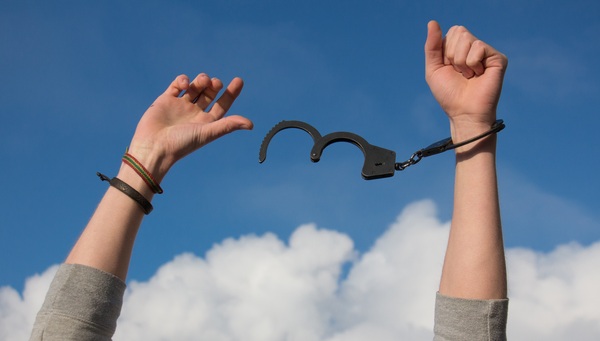
How Long Does It Take A Person To Overcome Their Addiction?
How long does it take a person to overcome their addiction? This article looks at the length of time required to overcome an addiction and the stages of getting over an addiction.
The length of time required to overcome an addiction
The length of time required to overcome an addiction varies from person to person.
Detoxing the body of toxins is a relatively quick process, but it does not guarantee that a person will no longer engage in harmful substance use.

While most psychologists believe that it takes 21 days to form a new habit, studies demonstrate that this isn’t nearly enough time to stop an entrenched pattern of behavior, especially one as powerful as addiction.
There are several potential variables that can affect how long it takes to overcome an addiction, including:
- The length of time that you’ve been abusing substances.
- The behaviors, attitudes, and emotions that support your addiction.
- The positive effects that substance usage has on your social life, health, and mental state.
- Your desire for change.
Addiction recovery times might vary significantly from person to person. However, according to the NIDA (National Institute on Drug Abuse), a minimum of 90 days is necessary for full recovery from drug addiction.
21 days to break an addiction?
The notion that it takes 21 days to form a new routine is no longer accepted as fact.
Psychologists estimate that while it takes around 21 days of focused effort to establish a new habit, it might take much longer to break an established one.
90 days to break an addiction?
After at least 90 days of abstinence, the prefrontal cortex of the brain begins to function normally again, according to Yale University researchers.
This may be one reason why there is a greater chance of success after 90 days of treatment compared to less time.
Currently, the most effective course of treatment is 90 days of inpatient rehabilitation because it offers patients enough time to reset their brains, learn and practice recovery strategies, and integrate them into their daily lives.
Addiction recovery is no different from any other endeavor in that it takes time to see results. The proverb goes something like, “Time is the best friend a patient has during therapy.”
Addiction is a chronic disease that can affect a person for the rest of their lives.
You can’t put a date on breaking an addiction, but the benchmark for therapy is 90 days. Even after many years of sobriety, addiction is a constant foe and recovery is a constant fight.
The Five Stages of Addiction Recovery
How long does it takes for a person to overcome their addiction will depend on the action taken for recovery. Below are the five stages of addiction recovery.
Addiction Recovery Stage 1. Precontemplation
In the early phases of sobriety, patients are not yet ready for any form of addiction treatment.
During this stage, they are on the defensive and constantly justifying their actions.
An overwhelming emphasis is placed on the euphoric effects they feel when under the influence of their drug of choice, and there is a noticeable lack of knowledge concerning the harmful impact of excessive drug or alcohol usage.
One reason someone can stay in this phase is if they don’t have any background knowledge regarding addiction.
Disappointment with previous attempts at recovery and treatment alternatives is another common reason people stay in the precontemplation stage.
Most people in the precontemplation stage have accepted the idea that they will never be able to heal. Every person has the potential for a full recovery, regardless of their starting point.
Addiction Recovery Stage 2. Contemplation
The following stage is one of reflective preparation. This describes a person who is open to making changes in the world, but not right now.
They are aware of the benefits of quitting drugs, which sets this stage apart from the others.
On the other hand, they are nevertheless keenly aware of the advantages they see in their substance abuse.
At this point, the patient is more open to reason, making this a crucial time for family members and treatment centers.
You can help them progress by not placing blame, passing judgment, or making allegations.
Addiction Recovery Stage 3. Preparation
In order to get sober, one must first make the decision to do so and then work to create a sense of urgency about that decision.
They have usually taken some form of action toward their goal, whether it be deciding to join a gym, making an appointment with a therapist, or trying to stop their addiction on their own without going to a treatment facility.
Although it is common for people in this stage to abstain from substance usage for at least a few of days, relapsing to contemplation or precontemplation in the face of triggers or tough feelings is also common.
Addiction Recovery Stage 4. Action
At this point, the person has taken serious steps toward making positive changes in their lives.
Long durations of sobriety and a willingness to seek professional assistance before or after relapse mark this phase of transformation.
More than simply the damaging conduct will disappear; the person’s entire way of life will shift. Self-care and self-understanding are present at this point of treatment, but they will need counseling to stay on track.
Addiction Recovery Stage 5. Maintenance
Those in the maintenance phase of recovery from addiction are making concerted efforts to avoid relapsing. They continue to follow the new routine they established, which includes regular exercise, recreation, sobriety, sleep hygiene, and group support.
They have less temptation to relapse than those in the action stage, and as a result, they have more faith in their capacity to stay sober for the long haul. Depending on the severity of the addiction as well as the individual’s genetics and life experiences, this phase can last anywhere from six months to five years.
Only a tiny fraction of persons can remain abstinent from their addictive behavior for the full six months. However, most people need to dedicate two to five years to the process to successfully break the habit and establish the new behavior.
Managing Withdrawal Symptoms
Both physical and psychological withdrawal symptoms can make it difficult to quit an addiction.
Physical symptoms of withdrawal from addictive substances range from being somewhat unpleasant (like to the flu) to potentially fatal. This is why discussing the ideal time and location to quit with a doctor is a smart move.
The good news is that, after a week or two of abstinence, the most of withdrawal’s acute symptoms will have subsided. While many people experience relief from withdrawal symptoms after kicking an addiction, for some, the discomfort might last for months.
Post-acute withdrawal syndrome (PAWS) describes this condition, which can last for several weeks, months, or even years. Further, addictions can cover up other mental health issues like anxiety, sadness, sleep disturbances, and even psychosis.
Consult a physician if you’ve been feeling down or irritable since giving up smoking, or if you’re worried that the world or other people seem unusual or disturbing. Helpful treatments are available.
We hope this article was able to answer your questions about: How long does it take a person to overcome their addiction?
If you want to discover more information about addiction, follow the link to our other pages on this topic.




